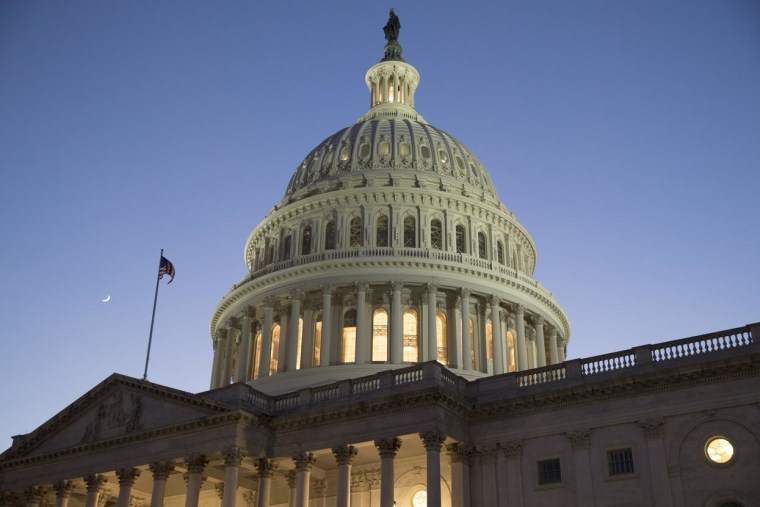As long as there's been a United States Congress, there's been a simple requirement for members wanting to cast a vote: they have to show up. Voting has changed over the years -- about a half-century ago, lawmakers started being able to vote through an electronic system, for example -- but there was no getting around the fact that members had to be physically present on the floor of their respective chamber to express their preference.
A viral pandemic, however, appears to have changed the conversation a bit. Roll Call reported over the weekend:
Despite congressional leaders' position that Congress does not need to consider remote voting in light of the coronavirus pandemic, the diagnosis of Sen. Rand Paul with COVID-19 has kept the topic alive at the highest levels -- including at the White House. President Donald Trump on Sunday endorsed the idea of Congress setting up remote voting procedures "on a temporary basis" after Paul, a Kentucky Republican, tested positive for the novel coronavirus.
Rand Paul is hardly alone. Two House members -- Florida's Mario Diaz-Balart (R) and Utah's Ben McAdams (D) -- have also tested positive, as have some Capitol Hill staffers. Several other members are isolated, either because of family members or because of interactions with people who've tested positive.
In light of the threat, and the importance of members keeping their distance from others, could we see an emergency reform that allows federal lawmakers to vote remotely? At least for now, that appears unlikely.
The Associated Press reported overnight on a report put together by House Speaker Nancy Pelosi's (D-Calif.) office, laying out some options. Remote electronic voting is not one of them: the AP noted that House Rules Committee Chairman James McGovern (D-Mass.) "determined there were too many security concerns in addition to logistical and technical challenges in the middle of the public health crisis."
If that's off the table, what's on it? The solution that's generating the most support right now is proxy voting. From the AP article:
Under the proxy proposal, a member of the House could be allowed to designate a colleague to vote for them in the event they are unable to return to Washington amid the coronavirus outbreak. If there are objections to a unanimous consent vote, the report said, proxy voting "is likely the best of the options available under the circumstances."
Here's how it would work: let's say Rachel Maddow and I were members of Congress, but in the midst of the public-health crisis, Rachel couldn't make it to Capitol Hill, while I could. She could authorize me -- formally and officially -- to vote for both of us.
Then imagine we could extrapolate from there, with other like-minded allies designating one elected lawmaker to vote on behalf of several.
It's not a perfect solution -- it would obviously still require some members to be in both congressional chambers at a time when most should be at home -- but it appears to have some bipartisan backing.
This would require a change to congressional rules, but given the circumstances, a temporary reform -- which would only be in effect until the end of the coronavirus pandemic -- could probably pass with relative ease.

